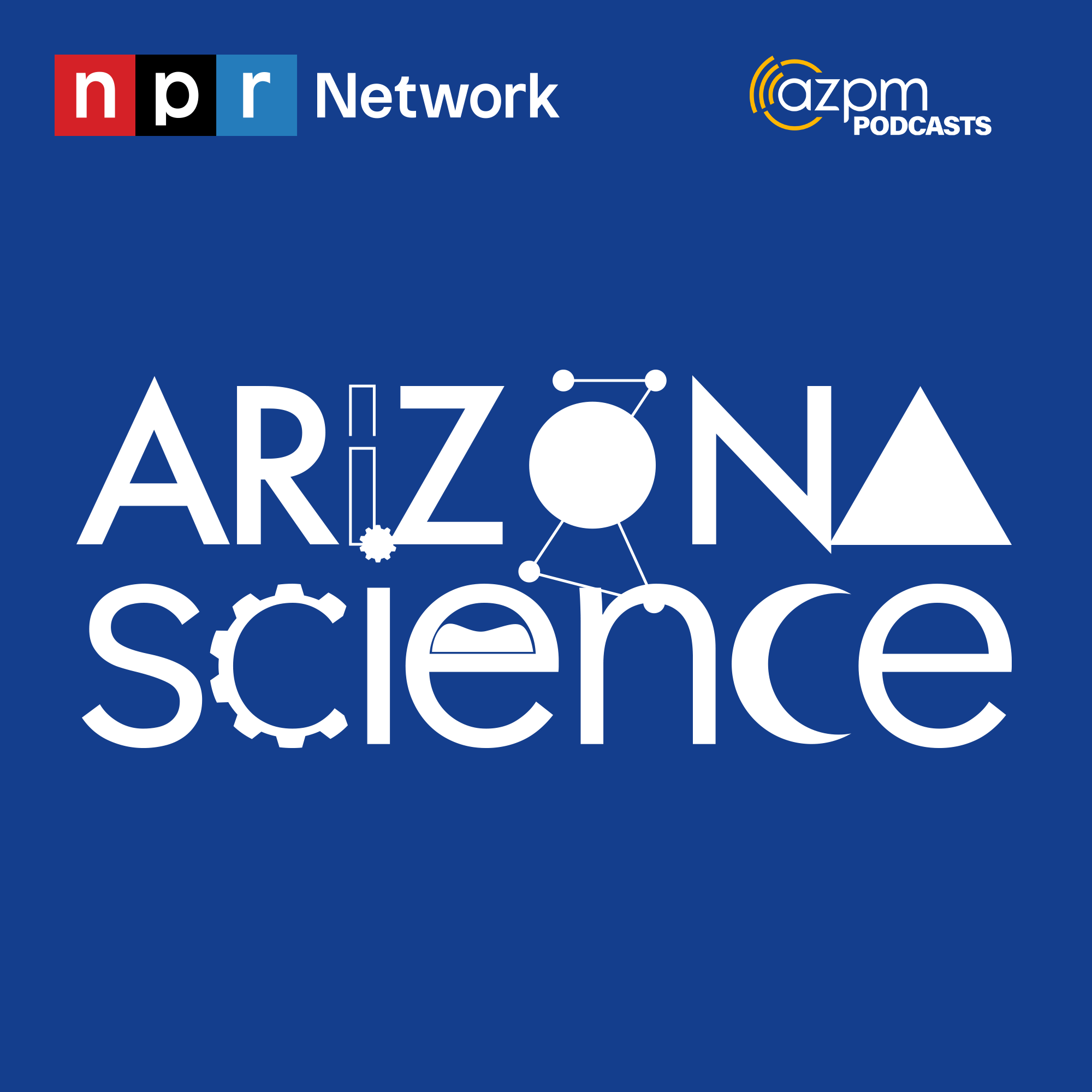Episodes
Elderly dogs can suffer from cognitive dysfunction, similar to dementia in humans. Evan MacLean with the Arizona Canine Cognition Center in Tucson explains how games and puzzles that provide mental stimulation for dogs helps researchers understand how human brains respond at an advanced age.
Published 05/17/24
Published 05/17/24
The saguaro cactus has been a source of study for southern Arizonans for decades. Saguaro National Park wildlife biologist Don Swann is among the scientists asking why saguaros are biologically fit to survive the ongoing drought, and looking deeper into its role in the desert ecosystem.
Published 05/10/24
Our cognitive abilities change as we grow older.
Published 05/03/24
Artificial intelligence is being put to work solving the challenge of feeding the planet. University of Arizona professor Murat Kucira talks about how advanced computing can help deal with issues like farming efficiency and the impact of climate change due to global warming.
Published 04/26/24
Studies found that traditional farmers did not suffer from lung diseases usually caused by dust in the fields where they worked.
Published 04/19/24
Researchers say people perceive sound based on where they are when they hear it.
Published 04/12/24
Economists often describe how consumer confidence drives spending decisions, but scientific researchers are asking if it's the other way around.
Published 04/05/24
The best way to observe the universe is with a telescope above the Earth's atmosphere, and the least expensive way to get there is using a stratospheric balloon. University of Arizona astronomy professor Chris Walker explains how he and his team are mapping the Milky Way with a balloon-mounted telescope above Antarctica.
Published 03/15/24
Researchers are looking at chemistry in sea water that affects coral reefs. University of Arizona Geosciences professor Diane Thompson talks about how events recorded in corals can help investigate climate change.
Published 03/08/24
Researchers studying prostate cancer have found introducing the disease in mice does not always produce accurate results.
Published 03/01/24
Researchers are investigating ways to use waste from fossil fuels to create a new class of advanced plastics. University of Arizona chemistry professor Jeff Pyun talks about how scientists are changing the way companies are thinking about plastic production. He will be the final speaker for the College of Science free lecture series next Wednesday.
Published 02/23/24
The University of Arizona-backed James Webb Space Telescope has opened new insight about planets outside our solar system. UA planetary scientist Sara Moran reveals the latest knowledge about exoplanets and the bizarre materials that make up their atmospheres. Dr. Moran is one of the featured presenters in the 2024 College of Science lecture series.
Published 02/16/24
Each ring on a tree stump can mark a complete cycle of the seasons, dating back thousands of years. University of Arizona researcher Charlotte Pearson talks about how trees have recorded events through time, from floods to solar storms. She will give a talk on the subject next Wednesday at the College of Science free lecture series.
Published 02/09/24
Scientists began developing theories about black holes more than a hundred years ago.
Published 02/02/24
Scientists began developing theories about black holes more than a hundred years ago.
Published 02/02/24
An astronomer in Europe discovered an asteroid last weekend only hours before it burned up in the atmosphere near Berlin.
Published 01/26/24
Animals are filling a growing need in the field of therapy and service work. University of Arizona veterinary medicine researcher Maggie O'Haire notes it isn't always dogs who are best suited to help people with physical disabilities and mental stress.
Published 01/19/24
Treatments for COVID-19 are effective, but it’s better if you can avoid getting the coronavirus in the first place. University of Arizona epidemiologist Kacey Ernst discusses the challenge of keeping people aware of vaccinations against COVID and other infectious diseases.
Published 01/12/24
University of Arizona forestry expert Don Falk talks about how woodlands might adapt to changes in climate.
Published 01/05/24
REPEAT. Cochlear implants can open a world of possibilities by restoring a sense of sound and speech. Retired University of Arizona honors professor Ted Glattke is taking the latest research in auditory science to small towns in Mexico, helping children overcome hearing issues.
Published 12/29/23
REPEAT. Studies into Alzheimer’s disease have found men’s and women’s brains age differently, except when men develop prostate cancer. University of Arizona neurology professor Roberta Brinton discusses research on who is more likely to develop Alzheimer’s and describes how menopausal hormone therapy might provide a key for treatment.
Published 12/22/23
REPEAT. Studies into Alzheimer’s disease have found men’s and women’s brains age differently, except when men develop prostate cancer. University of Arizona neurology professor Roberta Brinton discusses research on who is more likely to develop Alzheimer’s and describes how menopausal hormone therapy might provide a key for treatment.
Published 12/22/23
The key to better cybersecurity might be found in a beehive. University of Arizona Ecology and Evolutionary Biologist Anna Dornhaus talks about the strategies bees and ants use to direct collective behavior, and applying those methods to computer software to create better cybersecurity.
Published 12/15/23
Archeologists don't always focus on stone statues and drawings on walls. University of Arizona anthropologist Ed Jolie explains why items like clothing, baskets, nets or string made from organic material can also tell us a lot about ancient civilizations.
Published 12/08/23


